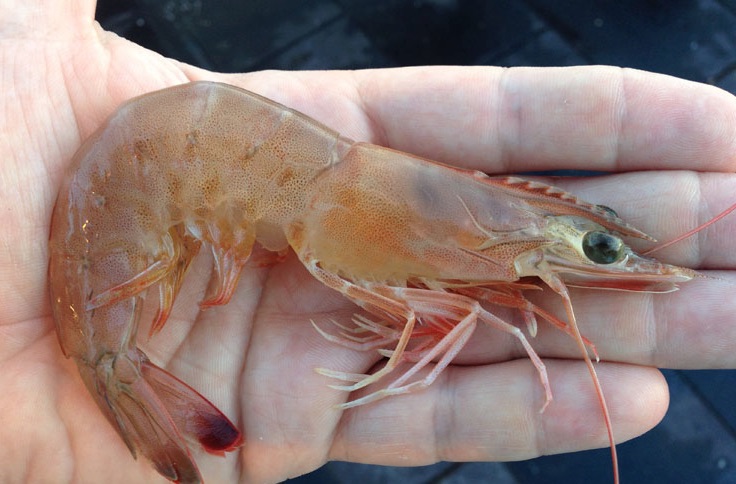
Gulf coast shrimpers land around $400 million a season in pink and brown shrimp. Surveys by NOAA scientists track shrimp populations. That and other data are used to set catch limits each year. Courtesy photo
Unprecedented flooding this spring is expected to negatively impact future shrimp harvests, which are already at historic lows according to forecasts for 2015. Estimates are made each year at the beginning of summer by scientists at the National Marine Fisheries Service Southeast Fisheries Science Center’s Galveston Laboratory. The current estimate is for July 2015-June 2016.
Estimates are obtained by monitoring inshore fisheries in Texas and the inshore and nearshore fisheries in Louisiana.That information is coupled with environmental variables to make a final assessment.
This year’s estimate of 42.8 million pounds for the two-state area is below the historical average of 56.5 million pounds calculated during the years between 1960-2013. Unusual weather patterns get the blame, according to NOAA Fisheries.
Important factors affecting post larval brown shrimp during peak times February through early April include salinity, temperature and tidal height. Bay water temperatures greater than 68 degrees Fahrenheit in April and May create optimal production, say the experts.
Both Texas and Louisiana have experienced spring weather fronts this year that have resulted in record high rainfall, creating large freshwater discharges into estuaries. Rains that ended Texas’ four-year-long drought in May — documented as the wettest single month on record — most likely concentrated young shrimp in the mouth of bays and away from optimal habitats.
“These extreme environmental factors may impact our forecast of harvest of brown shrimp this year,” said a NOAA spokesman in a recent statement. “It is unknown whether survival of shrimp was reduced or shrimp just moved out of our sampling area, because of the reduced salinities."
In Texas, estimates forecast a below average year at 18 million pounds from offshore Texas waters. Louisiana estimates are also low at 24.8 million pounds.





